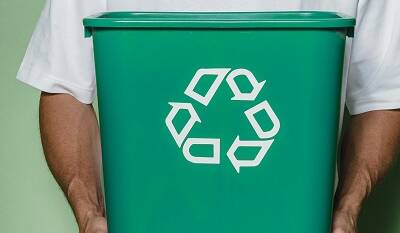Waste Services Near Me: Finding Reliable Solutions for Your Disposal Needs
Finding reliable waste services near me in your area is crucial for maintaining cleanliness and sustainability. Many local providers offer various options, including curbside pickup, recycling, and disposal services tailored to community needs. Understanding these services helps residents make informed choices that benefit both the environment and their households.
Waste management can vary significantly from one location to another, making it essential to research the options available. Communities often have different regulations, pricing, and service schedules that can impact decision-making. Knowing what is nearby allows individuals and businesses to select the most efficient and cost-effective services.
Connecting with local waste service providers not only simplifies disposal processes but also promotes responsible waste management practices. Engaging with these services fosters a cleaner environment and encourages recycling initiatives, creating a positive impact on the community as a whole.
Understanding Waste Services
Waste services involve the management and disposal of various types of waste generated by households, businesses, and industries. These services are crucial for maintaining public health and environmental sustainability. Key areas of focus include the types of waste handled and the regulatory frameworks governing waste management practices.
Types of Waste Handled
Waste services cover several categories of waste, including:
- Municipal Solid Waste (MSW): This includes everyday items like food scraps, packaging, and yard waste.
- Hazardous Waste: Such waste contains harmful substances, such as chemicals, batteries, and medical waste. Proper handling is essential to prevent environmental contamination.
- Construction and Demolition Debris: This type includes materials like concrete, wood, and metal from construction sites.
- Electronic Waste (E-waste): Discarded electronic devices, such as computers and smartphones, require special processing due to toxic components.
Each type of waste necessitates specific treatments and disposal methods to mitigate risks and protect the environment.
Regulatory Frameworks
Waste management is governed by various regulations at local, state, and federal levels. Key regulations include:
- Resource Conservation and Recovery Act (RCRA): This U.S. federal law governs hazardous waste management and ensures proper treatment and disposal.
- Local Municipal Codes: These regulations often dictate waste collection schedules, acceptable waste types, and penalties for non-compliance.
- Environmental Protection Agency (EPA) Guidelines: The EPA provides guidelines for waste management practices to minimize environmental impact.
Compliance with these regulations is essential for waste services providers. They ensure that waste is managed safely and sustainably, protecting both public health and the environment.
Selecting a Waste Services Provider
Choosing the right waste services provider involves careful consideration of local options and their commitment to sustainable practices. It is essential to evaluate both service quality and environmental responsibility.
Evaluating Local Waste Services
When evaluating local waste services, start by researching providers in the area. Look for companies that offer various waste management solutions, including residential, commercial, and industrial services.
Key factors to consider:
- Reputation: Read online reviews and ask for references.
- Service Offerings: Determine if they provide regular pickups, bulk waste disposal, or specialized services like electronic waste recycling.
- Pricing: Compare quotes to identify fair pricing structures, including any hidden fees.
- Customer Service: Assess how responsive and helpful the provider is when addressing inquiries.
Conducting this research enables you to make an informed decision tailored to specific needs.
Sustainable Practices and Recycling Options
Sustainability is increasingly vital in waste management. A responsible provider should prioritize eco-friendly practices and offer robust recycling options.
Important aspects to evaluate:
- Recycling Programs: Check if they have established programs for materials like plastics, metals, and organics.
- Waste Diversion Rates: Inquire about the percentage of waste they divert from landfills through recycling and composting initiatives.
- Certifications: Look for providers with eco-certifications, indicating a commitment to environmentally sound practices.
- Education and Community Engagement: Consider providers who actively educate customers on recycling practices and organize community clean-up events.
Selecting a provider with sustainable practices helps reduce environmental impact and supports community health.
Vaishno Devi Helicopter Booking: Your Complete Guide for a Hassle-Free Pilgrimage
Visiting Vaishno Devi is a spiritual journey that attracts millions of pilgrims each year.…














